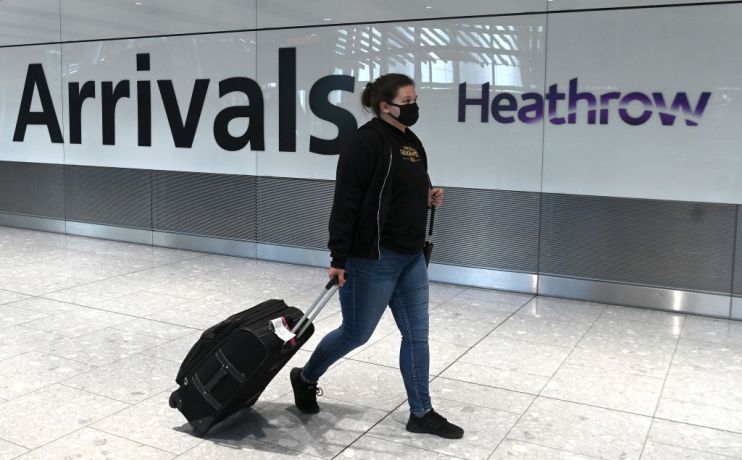UK rolls out ‘vaccination status’ requirement for some international arrivals as ministers mull vaccine passports

The government has updated its requirements for all international arrivals to England participating in the Test and Release scheme to provide their vaccination status, as ministers edge closer to introducing vaccine passports for foreign travel.
The Department for Health and Social Care (DHSC) introduced the Test to Release scheme in December as a way of reducing the mandatory quarantine period for people not infected with coronavirus.
All inbound passengers to England must have proof of a negative coronavirus test before travelling, and must self-isolate for 10 days upon arrival.
They are also required to take an NHS Covid test on their second and eighth days of quarantine, and can only leave isolation after 10 days if both tests come back negative.
However, those that opt into the Test and Release Scheme are able to slash their quarantine period in half if they pay for a private Covid test on their fifth day of isolation that comes back negative. Travellers must book and pay for their coronavirus tests from a list of approved private providers, some of which charge as much as £520 for the scheme.
Until now, those private providers have only taken details such as passengers’ names, contact details, NHS number and ethnicity.
However, DHSC has now updated its guidance to include the legal requirement that all private test providers collect the vaccination status of international arrivals that opt into the Test to Release scheme.
It is not yet known when the policy will come into effect.
A DHSC spokesperson this morning said: “This requirement is strictly to help us build a better picture of the vaccines and their impact on infections – it is not a requirement for entering or leaving the country
“As set out in the roadmap, we’ll review whether Covid-status certification could play a role in reopening our economy including international travel, reducing restrictions on social contact and improving safety.”
Vaccine passports
It comes amid government discussions over whether to introduce international vaccine passports for British citizens to allow foreign travel to return in time for summer holidays.
Vaccine passports could pave the way for the return of overseas travel for Brits, after Boris Johnson said international holidays could potentially resume in the coming months.
Setting out his roadmap for leaving lockdown last week, the PM said the current ban on non-essential travel may be scrapped as early as 17 May if all else goes to plan.
The Prime Minister’s official spokesperson confirmed this morning that the UK will enter talks with the EU on how to establish “vaccine certificates”.
The spokesperson said Michael Gove and the Cabinet Office are leading the research into “Covid status certification”.
“Of course you can expect them to speak to the EU and other countries on how they may implement any similar sort of policies,” they added.
It comes after the European Commission today announced proposals to roll out a “digital green pass” that could see the resumption of international travel across the EU and further afield in the coming months.
European Commission president Ursula von der Leyen said the passes will provide “proof that a person has been vaccinated” against Covid-19, as well as details of tests.
Countries across the EU are facing growing anger over the sluggish progress of the EU’s vaccine rollout, as the bloc continues to lag behind Britain.
An average of just five per cent of EU residents have received their first dose of a coronavirus vaccine, according to the European Centre for Disease Prevention and Control’s Covid-19 Vaccine Tracker. The figure is as low as 4.9 per cent in France and 4.2 per cent in Italy.
In comparison, around one in three Brits have received their first dose of either the Pfizer/Biontech or Astrazeneca jabs, with more than 20m doses administered in total so far.
Speaking at this evening’s Downing Street press conference, deputy chief medical officer Jonathan Van-Tam said: “Clearly, whether we go on holiday abroad places such as Europe depends upon what countries will say and do in terms of foreign tourism. That’s the best I can do to level with you.”